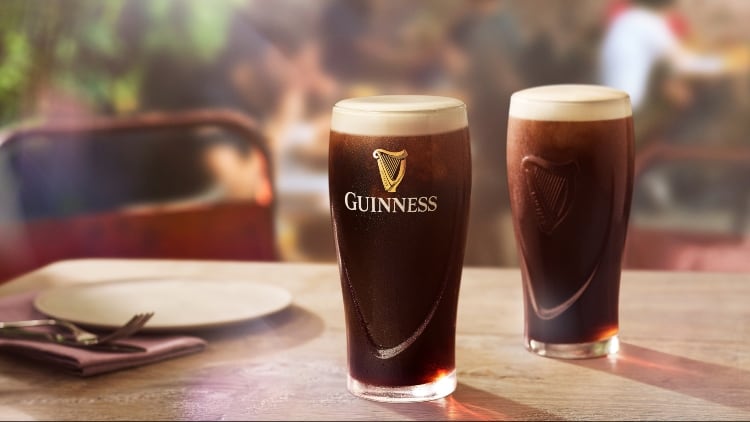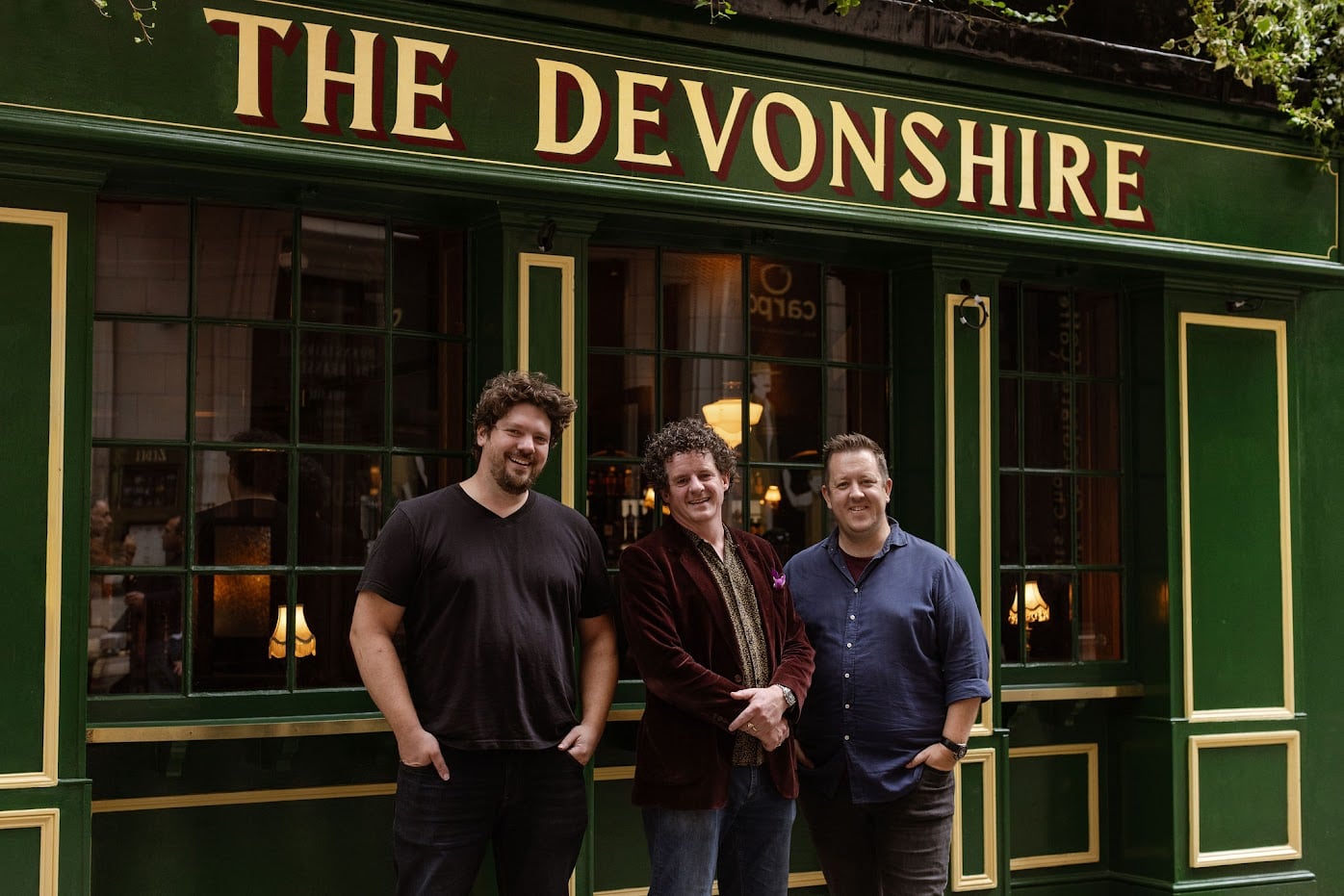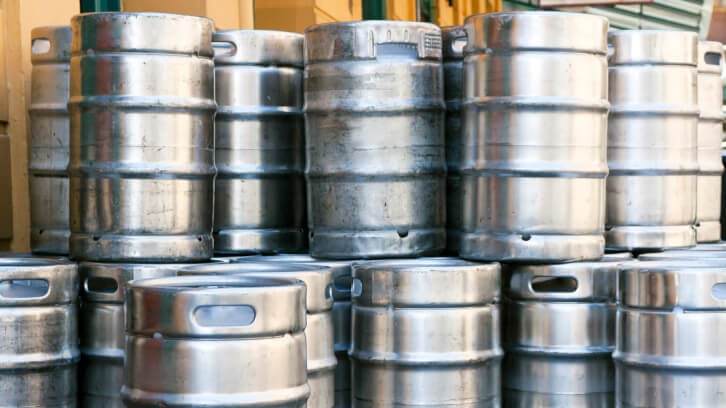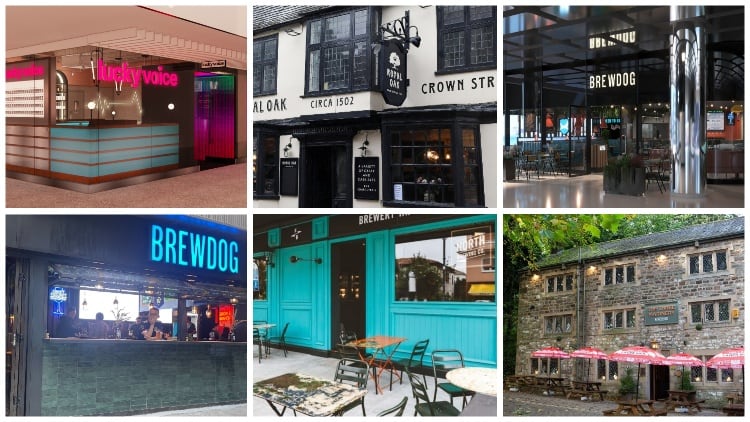Not only is it definitely time for a stout, today (Thursday 2 November) is also International Stout Day so a lust for a tipple must be on the cards for many on this rainy day.
Of course, Guinness has been the king of the dark stuff since everyone reading this starting visiting or working in a pub but there are plenty of rivals brands that have the stout crown in their sights.
How iconic is Guinness in the UK? Well, 198m pints of the 4.2% ABV stout are sold in UK pubs every year so that is, on average, 3.8m pints sold per week and it is available in 36,000 pubs in the UK (Source: CGA Total GB 09.09.2023 – L52 Weeks (HL)).
“Guinness has an amazing 264-year history and we continue that legacy by ‘standing on the shoulders of giants’ – this is all about looking back to look forward and continuing the brand’s iconicity well into the future,” says Anna Macdonald, category marketing director, Guinness.
“Consistency plays a big role. We think a lot about what the consistent elements of the brand are, and how we carry them forward. Among our most consistent elements is the iconic one quarter white and three quarters black pint; this is unmistakably Guinness and our most memorable key brand asset.”
And it’s the pour that is so important to the leader in the category. Always visible to the pub customer, watching a pint settle is pleasure so many people enjoy.
“Ensuring people get to enjoy a perfect pint of Guinness, every time, is key,” Macdonald adds. “Ensuring consistency and supporting our customers to be able to deliver this to their customers is a priority for the brand.”
The all-important set-up is vital to maintaining the quality of a pint of Guinness. All draught Guinness is made in Dublin and exported to the UK and Macdonald explains what happens when a pub receives a keg delivery.
“The licensee will check the dates to ensure correct stock rotation and attach the keg to the to the dispense system via the keg coupler.
“The dispense system will have been commissioned by our dedicated Guinness engineer team to ensure it will deliver the perfect pint to every consumer.
“Once the keg is connected and the system is primed through the fob connector, the licensee is ready to open the tap and pour Guinness into a clean glass using the iconic crafted pour to control the ultimate gas breakout and ensure the iconic head forms with the correct head size to deliver the best consumer experience.”
Quality control is vital to Guinness and it imparts the seven Cs for its products, which are Correct Gas, Correct Temperature, Clean Lines, Clean Glassware, Counter Visibility, Consistent Freshness and Crafted Presentation.
Pouring in more than 250 pubs
Stout is a category worth more than £1bn in the UK on-trade and has grown its share of total beer to 8.1% from 6.9% during the past 12 months, according to BrewDog customer marketing manager – on-trade Ben Lockwood.
The Scottish brewer and pub operator entered the ‘stout wars’ with its Black Heart as a permanent beer earlier this year, having brewed plenty of stout variants over the years.
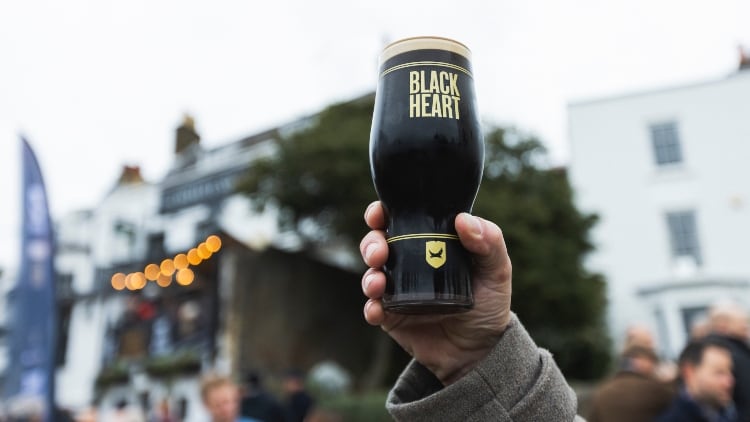
“With more choice now available, and Black Heart attracting a younger, more affluent drinker we expect this will only continue in 2024,” Lockwood states.
BrewDog’s Black Heart is now pouring in more than 250 pubs and bars across the UK, including Arc Inspirations, Market Town Taverns and its own bars, where it is the #4 best-selling SKU.
Lockwood says: “When it comes to stout, there really has only been one choice in most pubs and bars for years.
“With the dominant brand launched nearly 300 years ago, we had to ensure we created a quality stout with great accessibility and appeal – it was important Black Heart stood up as a credible and delicious alternative.
“We worked with our brewers to develop a classic draught stout. Black Heart is a 4.1% ABV no-nonsense dry-Irish-style stout, brewed in and for this century. Chocolate and extra dark crystal malts give layers of roasted, toasted coffee and cocoa, with a hint of caramel coming through. It’s smooth, it’s creamy, it’s all head and it’s all heart.”
Manchester-based brewer and pub operator Joseph Holt says it is selling a lot more stout than it used to – particularly at its 127 pubs and to the free trade – and hails its permanent variant Trailblazer, which is a 4.3% ABV beverage.
Head brewer Phil Parkinson says: “Trailblazer consists of a lot of speciality malts, has a higher ABV and one of the most expensive for us to produce. But we still sell it at a cheaper price to Guinness.
“Brewed with distinct roasted barley, Trailblazer has a smoky, dark roast coffee aroma with hints of chocolate, treacle, liquorice, and nutty notes. With a velvety body and firm creamy head, it also strikes a subtle bitter-sweet taste with a fine, dry finish.”
Parkinson adds when he was working on the recipe for Trailblazer, it was important to make it ‘sessionable’, he explains: “Sometimes that word can be code for insipid but our stout is anything but. We don’t brew insipid – we have produced a drink that is flavoursome, balanced and moreish.”
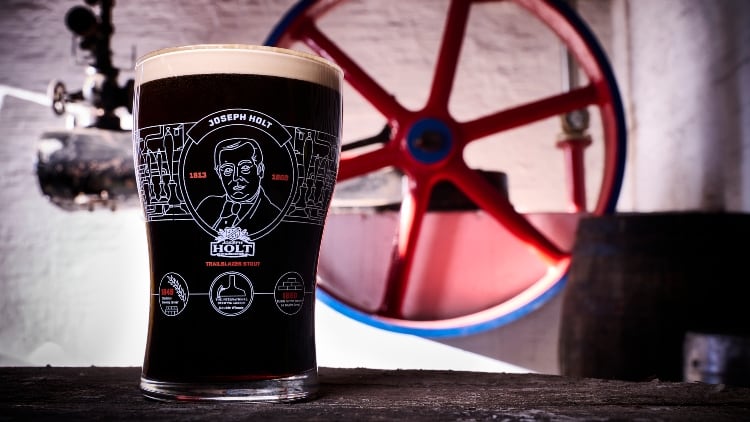
He continues: “Ours is cheaper because we brew it in-house without any compromise on the quality of ingredients. We recognise the strength of the competition but it is not only in price that we intended to beat the competition but in quality too – as witnessed by the results of our blind taste test.
“Today’s pub drinkers want quality, affordability, satisfaction, and taste – our stout delivers on every level.”
Inspired by Guinness
Bermondsey-based Anspach & Hobday offers a porter called London Black at 4.4% ABV. Executive chairman and co-founder Jack Hobday gives Guinness credit as a “great brand built around a well-loved beer” and adds it is a “sessionable strength, balanced (perhaps a little bland) and accessible beer”.
He adds: “Guinness was also an early adopter and pioneer of the nitro-pour – a pour that uses low carbonation and nitrogen to mimic traditional cask beer upon which Guinness, other smooth flow beers and of course London Black are based.”
He says being a pioneer helped Guinness cement its place on the keg lines against cask beers and it is one of the best branded beers globally.
“Eminent and innovative marketing going back decades backed by a focus on consistency and aesthetics have in many ways taken the standard of draught beer and marketing to new levels,” Hobday adds. “It has also become entirely synonymous with Ireland. On many levels, Guinness has certainly inspired London Black, which is really beer going full circle given the history of stouts, porters and their ultimate origins in London.”
On the difference between a stout and a porter, Hobday explains porters are the original dark beers brewed in London and named after the workers who loved them, the strongest of which became exported and were known as stout porters – stout for short.
Guinness then evolved the recipe to include roasted barley (unmalted but roasted) and the Irish dry stout was born.
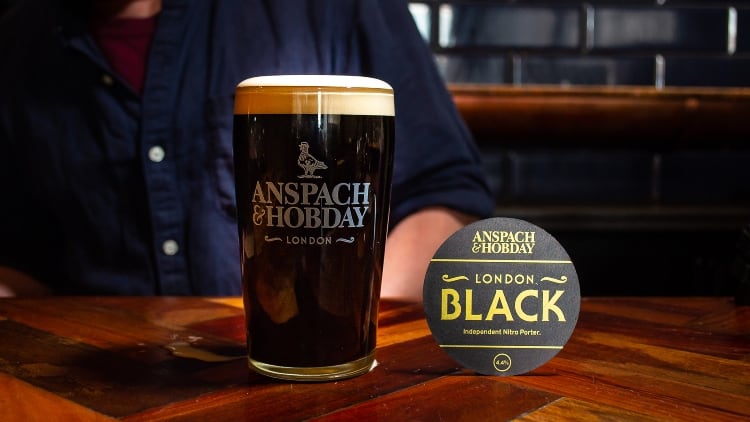
Hobday says: “What makes London Black special is it balances the rich character of London porters with the smoother texture of the Irish dry stout, we use a mixture of roasted barley (which gives a dry stout its thickness and name) and roasted malted barley, which gives our porter less of a toasted and roasted character and more smooth chocolate notes backed up by red berries and dark fruit from the hops.”
London Black is sold at more than 200 outlets and demand continues to almost outstrip supply. The porter makes up 70% of Anspach & Hobday production and was only launched in 2021.
“The modern drinker has a very eclectic palate,” Hobday concludes. “Perhaps a bit more diverse than those of the recent past, especially with the rise of craft beer drinkers.
“London Black has been far more accessible, even among the more traditional drinker, people who think they don’t like stout or dark beer on keg because they have only ever had Guinness might sip twice before realising they love London Black.”
Respect the crown holders
Brennan’s Irish Stout is making its mark in the UK and brewery owner Peter Brennan explains sales at UK pubs are made through T&R Theakston.
As a small family business from Wexford, Ireland, Brennan has plenty of positivity towards Guinness and says: “Guinness is Guinness and you have to respect they are the crown holders for stout and have always been that leading stout in the market and will continue to do so but it’s nice to think consumers and stockists are now taking a different approach to new and alternative brands.
“Guinness is a fantastic historical brand, with hundreds of years of progression worldwide, there have been many brands who have tried taking on Guinness that have launched over the years as the new stout for the market, and failed and will continue to do so.
“At Brennan’s, we believe it is important to be stable, know our place in the market, what we can and are capable of doing, building our brand one step at a time with our fantastic stockists and consumers respectfully as a family brand.
“What we know however, is that there’s room on bars for more than one stout, such is the demand for it. Any good bar has four or five lagers so why is it only one stout? Customers love a choice and that’s what we want to give people.”
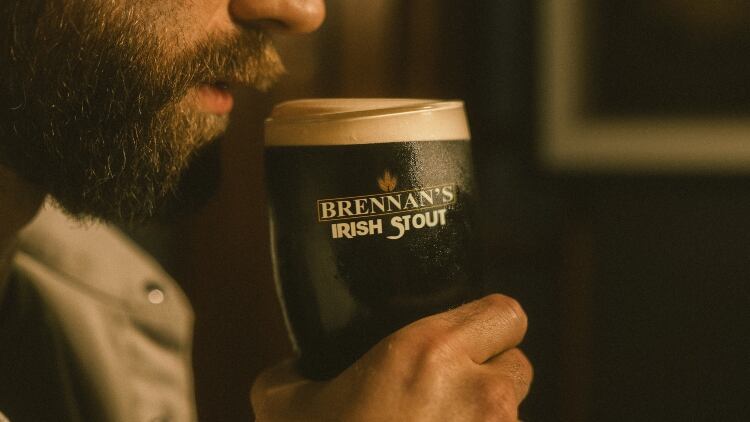
He says Brennan’s Irish Stout pours and settles like Guinness but is a “really light and smooth with a hint of chocolate taste in your mouth, leaving a lovely creamy trace down the glass while you drink”.
When it comes to what the customer wants, Brennan states: “The customer is always looking for the same perceived quality as Guinness but certainly with more of an eye on value. The modern customer is also definitely willing to try new products and we fit that bill. The stout market is there, there’s room for innovation, room for improvement, room for more products that still offer that great tasting creamy pint.”
Excellent marketing campaigns
Norfolk-based Woodforde’s Brewery has its own stout called Albion Cream Stout and CEO Joe Parks believes the market is hotting up.
He says: “We are at the start of a very interesting period for stout. You can see new entrants and new interest in the category, which can only be good news for the market, as a whole.
“There are some lovely stouts out there and some average ones – drinkers deserve to have a chance to try them all and see which one best suits their palate.”
He adds stout drinkers are looking to broaden their experience beyond Guinness and those who don’t usually drink stout are open to giving it or another variant a try again.
Parks recalls: “I took to Guinness as a teenager myself so I have always enjoyed it, and still do. They are famed for their excellent marketing campaigns and so have earned their status.
“I’m not sure it’s the best stout out there but you can probably say the same for the leading brand in any category, cask, lager or cider.
“Unfortunately, success often comes at the expense of flavour. In my opinion, Guinness Extra Cold brought more drinkers to the brand but at the expense of flavour.”
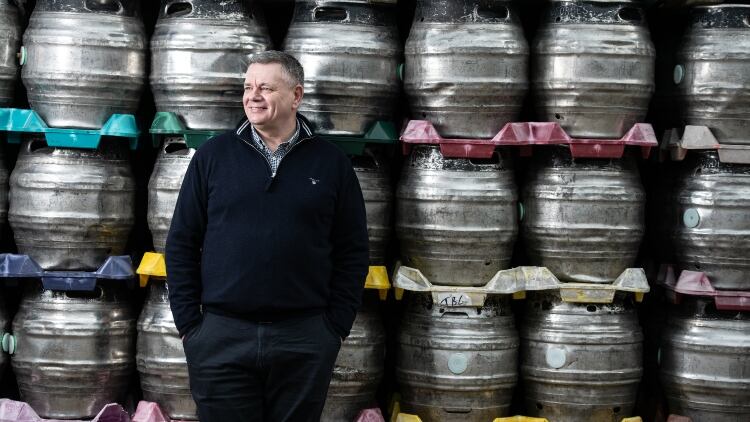
Guinness explains it covers many bases on temperature levels. Macdonald of Guinness states: “We still offer [Guinness Draught and Guinness Extra Cold] variants to customers and some outlets still stock both so that they can offer choice to their customers.
“The difference in both variants is temperature as we set Guinness Draught to serve at 5 plus or minus 1 degree and Guinness Draught Extra Cold at 3 degrees plus or minus 1 degree. To maintain Extra Cold, we either use an under bar cooler or use a special chilled line to deliver the temperature difference.”
Home-grown affair
Woodforde’s Parks continues: “When we developed our Albion Cream Stout, it was never about taking on Guinness or trying to replicate it. I love stout and I thought it would be great to make a fantastic stout of our own.
“It was our master brewer Neil Bain’s final project before his retirement. He worked with our talented development brewer Bob Bullock to create a very complex recipe that delivered a great stout.
“We use a blend of seven different grain types to give a wonderful complex palate and three English hop varieties – making it a very home-grown affair. We made a stout with the consumer in mind and are very happy with the result.”
Stout makes up about 10% of the Norfolk brewer’s mix but it sells more export than in the UK but this could be down to the selective process it has.
“I’d rather focus on quality distribution than pushing it everywhere,” Parks says. “We are not trying to take over the market, we just want to give people a quality stout.”
He describes Albion Cream Stout as rich, full bodied and satisfying with a hint of a bitter finish with lovely lacing down the glass.
Black Cab stout from Fuller’s Brewery (now owned by Asahi) is now only available in bottles but was once available in pubs and there are plans to bring it back to the on-trade and the business is “currently actively looking to trial it on draught in a small number of targeted outlets”.
Fuller’s admits Guinness is “undoubtedly, a formidable presence in the stout category and has earned its reputation over the years” but on determining the ‘best’ stout, it comes down to a matter of personal preference.
The brewer said: “There’s a wide world of stouts out there, each with its unique characteristics, from dry stouts to imperial stouts, and many craft breweries produce exceptional stouts worth trying.
“Fuller’s Black Cab on draught has a great cream flavour and well-rounded finish.”
What does the future hold?
Guinness enjoys good backing and it does not sit still. Macdonald says: “Innovation is key to increasing the number of occasions people can enjoy Guinness.
“For instance, we launched Guinness 0.0 so that Guinness fans who are looking to moderate can get a pint of the black stuff with all the Guinness and none of the alcohol. More recently, we launched Guinness Nitrosurge so people can enjoy the perfect two-part-pour of a Guinness, previously only available in the pub, at home.
“Our focus at the moment is Guinness Draught, Guinness 0.0, Nitrosurge and Microdraught. We are also really excited about our new brand home and culture hub, Guinness Old Brewer’s Yard, set to open in the heart of London in late 2024.”
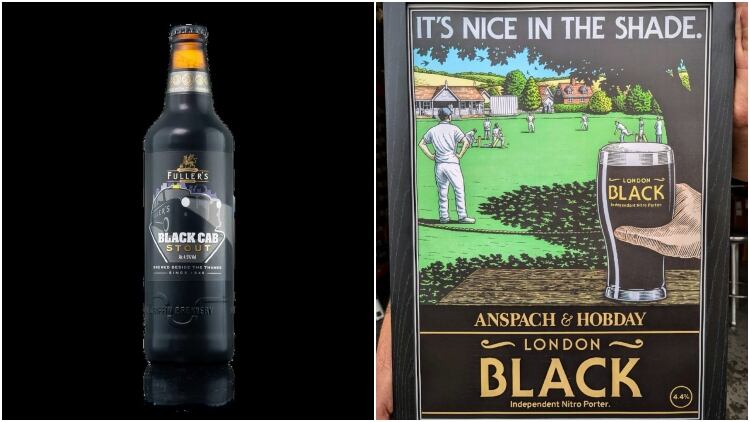
Targeting a younger market is where BrewDog see Black Heart taking its next step up.
Lockwood explains: “Initial consumer testing and insight was compelling, but it has completely exceeded our expectations. With flavour at its core, Black Heart is already introducing more younger consumers to the stout category, who are returning time and time again, indicating its potential to drive further growth by appealing to those that have all but given up on the chance of an alternative.”
Hobday of Anspach & Hobday said of London Black: “Guinness has arguably enjoyed an effective monopoly on nitro-stouts and dark beer – who can name the second and third best-selling stouts/porters in the UK?
“Until we launched London Black and made a success of it, few publicans have really felt they’ve had a brand or beer that’s able to offer real competition at the taps. They haven’t had a choice and so drinkers haven’t had a choice. London Black is unravelling that and offering publicans and drinkers a London choice.”
Guinness does not fear the competition offered by other makers of stout but welcomes it.
Macdonald explains: “Brands that help introduce more drinkers to stout is beneficial for the sub-category. Our 264-year heritage, quality of our liquid and role in communities is a great foundation for success to date but we don’t rest on our laurels and are constantly looking at innovation that will help to grow Guinness and grow stout.”
So is a stout really just for Christmas?
Woodforde’s Parks thinks not. He says: “I don’t buy that idea at all. Sales of Guinness are booming in Africa – and I think it’s pretty warm there.”

